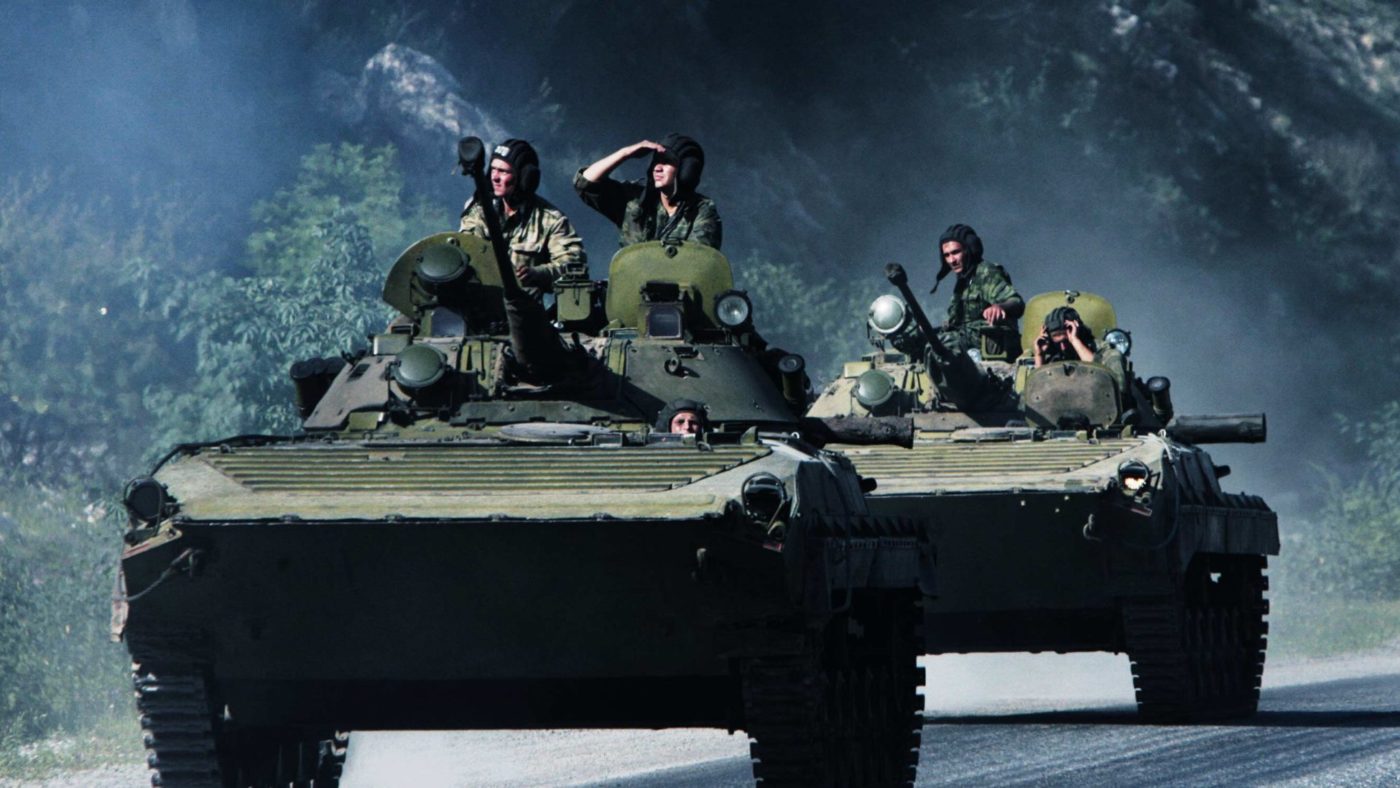Today marks the tenth anniversary of the ‘five-day war’. On August 7, 2008 Russia invaded an independent and sovereign country, its small pro-Western neighbour, Georgia.
President Trump recently voiced concerns about another small country exposed to Russian pressure. “Montenegro is a tiny country with very strong people,” Trump mused. “They’re very aggressive people. They may get aggressive, and, congratulations, you’re in World War III”. Trump’s comments about a fellow NATO member state were witheringly described as a “another gift to Putin” by the former US ambassador to NATO, Nicholas Burns.
Ten years on from the Georgia war, why do Western countries continue to repeat the same mistakes in their stance towards Russia. Why are leaders still questioning the importance of small states? The August war and subsequent strategic decisions exposed the weakness of the West and the dangers of complacency.
The attack on Georgia had fundamental geopolitical importance – it showed the world that Russia rejected the post-Cold War geopolitical order. It proved that the Kremlin was not afraid to use hard power to challenge a security system that it regarded as unfair. For European countries kidding themselves that Vladimir Putin was simply a troublesome partner rather than an outright foe, the war in Georgia should have lifted the veil.
Unfortunately few Western leaders managed to draw the right conclusions about the true nature of Putin’s regime. Indeed, directly after the war, the EU introduced the Partnership for Modernisation with Moscow, followed soon after by the Obama administration’s ‘reset’ policy. Despite strong statements that there would be no business as usual, Western leaders were reluctant to see Russia as it was – a revisionist, opportunistic power that not only created chaos in the post-Soviet space, but aimed to challenge the post-Cold War security architecture.
This failure had disastrous consequences in the following years. First was Syria, then came Ukraine and the annexation of Crimea. Russia’s support for the Assad regime, coupled with an indecisive US policy resulted in the refugee crisis, which was in term actively used by Russia to foster polarisation in Europe. By not punishing Russia adequately after the August war, the West helped incubate some of the dangers it is now having to deal with: today, the Kremlin is engaged in a hybrid war, challenging post-Soviet states on its borders while also trying to undermine Western democracies.
The Kremlin has not used military power against the West yet, but it has a number of other tools at its disposal: from hacking and disinformation campaigns to using corrupt money to subvert the political process. Collectively, as Edward Lucas and Peter Pomerantsev rightly note, they form “a formidable offensive and defensive weapon” that aims to divide and conquer, distract and confuse.
If Georgia was not enough of a wake-up call to the West that Russia was an imminent danger, the Ukraine crisis and the annexation of Crimea really should have been. And to a certain extent they have been. The annexation of Crimea was a red line for Western governments, and since 2014 they have reacted by passing sanctions against the Russian government. There was, however, a notable unwillingness on the part of the Obama administration to back up sanctions and rhetoric with military assistance to either Ukraine or Georgia.
Today, leading European countries are still not investing enough in defence to reach the NATO target of 2% of GDP, whilst Germany is still building energy ties with the Kremlin. At the same time, President Trump’s embrace of Putin at the Helsinki meeting sent at best mixed messages to both Russia and the post-Soviet region and at worst, undermined the security of both smaller countries and NATO member states.
No matter how ‘tiny’ some of these countries are, the war in Georgia proved that their fate is directly linked to Western security. If the West fails to stop Russia in Georgia, Ukraine or especially Montenegro, there is no guarantee that an emboldened Russia will not chance its arm and attack a bigger state. As we have witnessed time and again, Putin is not afraid to use force when he feels he can get away with it.
If the Kremlin sees that there is no willingness and faith in NATO – there is no reason why it should limit its ambitions to small countries. This ultimately undermines the sole purpose of NATO – an alliance created to avoid war and defend the Western liberal democratic order and a “Europe whole and free”.
The West should learn from past mistakes. Instead of questioning collective defence and NATO’s support for Russia’s immediate neighbours, President Trump and European leaders should challenge Russia more actively with a clear, coordinated strategy and use NATO as a deterrent measure.
Above all, it’s time for the West to assert its values with the same force and confidence shown by Vladimir Putin.


